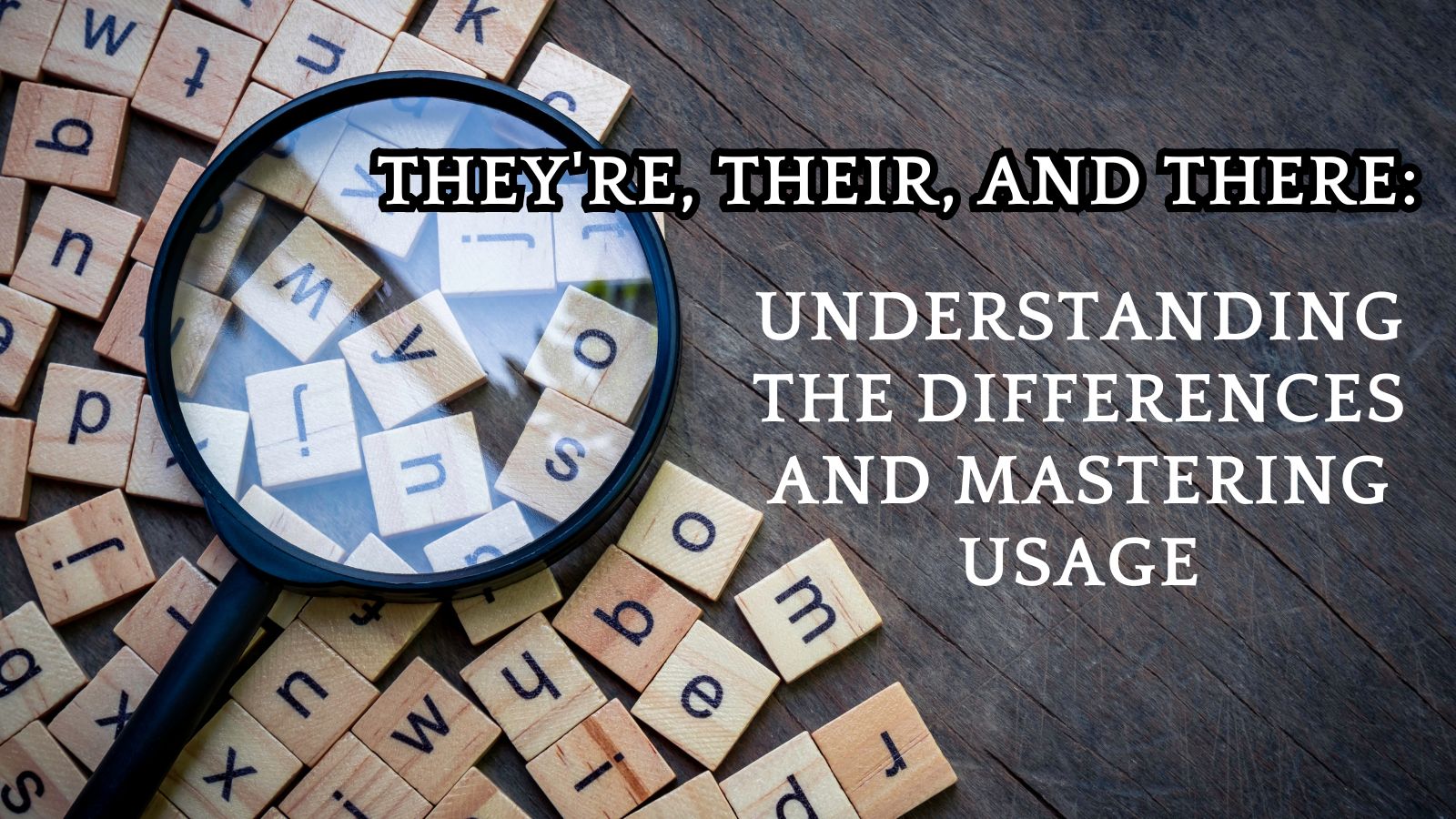They’re, Their, and There: Understanding the Differences and Mastering Usage
Introduction:
The English language is full of homophones – words that sound the same but have different spellings and meanings. Among the most commonly confused homophones are “they’re,” “their,” and “there.” In this blog post, we’ll explore the differences between these three words, provide examples of how to use them correctly, and delve into their etymologies to better understand their origins.
They’re: The Contraction
“They’re” is a contraction of the words “they” and “are.” It’s used to shorten the phrase “they are” in a sentence. For example:
- They’re going to the mall today. (They are going to the mall today.)
- I think they’re excited about the party. (I think they are excited about the party.)
To remember when to use “they’re,” simply replace it with “they are” in the sentence. If it makes sense, you’ve used it correctly.
Their: The Possessive Pronoun
“Their” is a possessive pronoun that shows ownership. It’s used to indicate that something belongs to or is associated with a group of people (they). For example:
- Their house is the one with the red door. (The house belongs to them.)
- The students turned in their assignments. (The assignments belong to the students.)
A helpful trick to remember “their” is that it contains the letter “i,” just like other possessive pronouns such as “his,” “hers,” and “its.”
There: Indicating Location or Existence
“There” is used to refer to a place or location, or to indicate the existence of something. It can be used as an adverb, pronoun, or noun. For example:
- We’re going there for the conference. (Referring to a specific location.)
- There is a lot of work to be done. (Indicating the existence of work.)
- I’ve never been there before. (Referring to a place.)
To remember “there,” associate it with the idea of location or existence.
Etymology: Tracing the Origins
Understanding the etymology of words can help us better remember their meanings and uses. Here’s a breakdown of the origins of “they’re,” “their,” and “there”:
They’re:
- “They’re” is a contraction of “they” and “are.”
- “They” comes from the Old English word “þā,” meaning “those.”
- “Are” comes from the Old English word “aron,” also meaning “are.”
- The apostrophe in “they’re” indicates that letters have been omitted (a + re) to form the contraction.
Their:
- “Their” is the possessive pronoun form of “they.”
- It originated from the Old English word “thǣra,” which later evolved into “thair” before becoming “their.”
- Originally, it meant “of them” or “belonging to them,” indicating possession.
There:
- “There” is derived from the Old English word “þǣr,” meaning “in or at that place.”
- It was also influenced by the Old Norse word “thar,” which had the same meaning.
- Throughout its history, “there” has been used to refer to a location or indicate existence.
Conclusion:
Mastering the differences between “they’re,” “their,” and “there” is crucial for clear, effective communication in English. By understanding their meanings, using the provided examples and tricks, and learning about their etymologies, you’ll be well-equipped to use these homophones correctly in your writing. Remember, practice makes perfect, so don’t be afraid to keep using these words in your daily life. With time and effort, you’ll confidently navigate the world of “they’re,” “their,” and “there.”
If you found this helpful, we have more grammar help on our site.
- 100 Screenwriting Ideas to Get You Writing - January 20, 2026
- 100 Winter Storm Writing Prompts - January 17, 2026
- 100 Haunted House Story Starters: Craft Your Scariest Tale Yet - January 10, 2026




